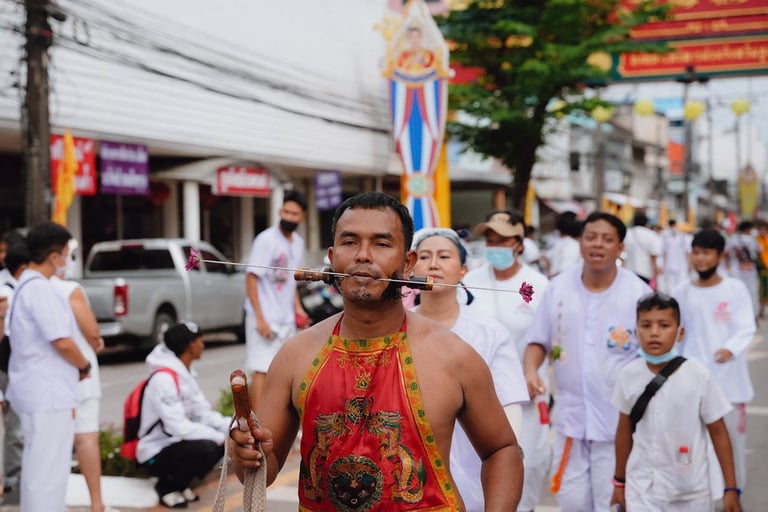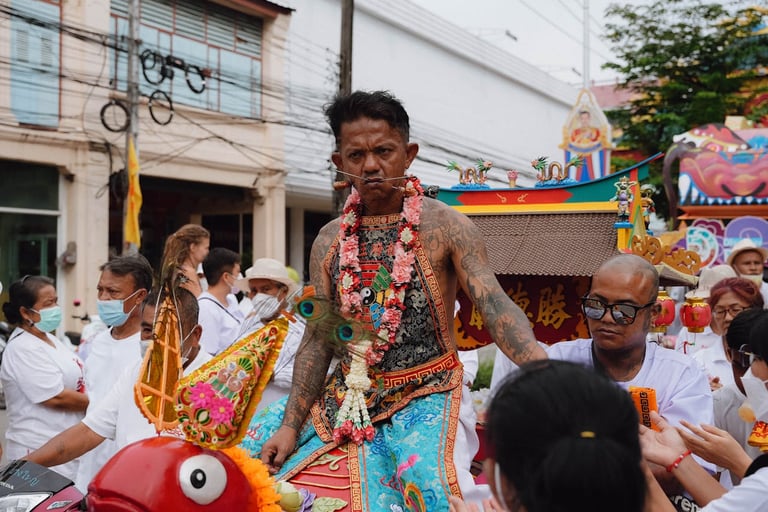Embracing Purity and Spirituality: The Vegetarian Festival Unveiled
Introduction:
In the heart of Southeast Asia, a vibrant and spiritually charged celebration takes center stage each year – The Vegetarian Festival, also known as the Nine Emperor Gods Festival or J Festival with notable celebrations in Thailand, Malaysia, and Singapore. Spanning nine days in the ninth lunar month of the Chinese calendar, typically falling in September or October, the festival revolves around a strict vegetarian or vegan diet as a means of purifying both the body and spirit. Rooted in the traditions of Chinese Taoist and Buddhist communities, this annual event transcends cultural boundaries, captivating both locals and visitors alike. Let's explore the essence and significance of this unique festival that melds culinary choices with deep-rooted religious practices.
Origins and Significance:
The Vegetarian Festival has its roots in Chinese mythology and folklore, specifically associated with the Nine Emperor Gods. Devotees believe that during the festival, the Nine Emperor Gods descend to the earthly realm to bestow blessings upon their followers. This ten-day celebration is marked by strict vegetarianism, symbolizing purity and spiritual cleansing. Participants refrain from consuming meat and other stimulants, adhering to a strict vegetarian diet to purify the body and mind.
Ceremonial Rituals and Processions:
The festival is characterized by elaborate ceremonies and processions that weave through the streets of participating communities. Devotees, dressed in traditional white attire, participate in rituals at temples, seeking blessings and divine protection. The atmosphere is charged with the scent of incense, the rhythmic beats of drums, and the vibrant colors of ceremonial flags and banners.
Striking Visual Spectacle:
One of the most visually striking elements of the Vegetarian Festival is the ritualistic acts of self-mortification undertaken by devotees. These acts include piercing the body with sharp objects, such as swords, skewers, and even bicycles, symbolizing the repelling of evil spirits and demonstrating the power of spiritual purity. While these practices may seem extreme to outsiders, they are a testament to the devotees' unwavering faith and commitment to the principles of the festival.
Vegetarian Gastronomy:
Central to the festival is the delectable array of vegetarian dishes that emerge from kitchens during this period. Local markets and street stalls showcase a wide variety of plant-based delicacies, each bursting with flavor and creativity. From savory stir-fries to sweet desserts, the vegetarian cuisine crafted during the festival offers a diverse and delightful culinary experience for both locals and visitors.
Community Unity and Cultural Harmony:
Beyond its religious significance, the Vegetarian Festival fosters a sense of community unity and cultural harmony. The collective observance of the festival creates a shared experience that transcends individual differences. The vibrant processions, colorful decorations, and the aroma of vegetarian delights serve as a cultural tapestry that binds communities together, celebrating diversity in the midst of shared traditions.
Conclusion:
The Vegetarian Festival, with its blend of religious fervor, culinary delights, and vibrant ceremonies, stands as a testament to the rich cultural tapestry of Southeast Asia. Beyond its roots in Chinese Taoist and Buddhist traditions, the festival has become a unifying force that bridges communities, fostering a sense of shared identity and purpose. Whether you are a devoted follower or a curious visitor, the Vegetarian Festival offers a unique opportunity to witness the intersection of spirituality, tradition, and gastronomy in a dazzling display of cultural richness.




Address
Soan Garden, Islamabad
Pakistan
Contacts
WhatsApp: +92-321-9012647
Email: shafqat@foodandfestivals.com